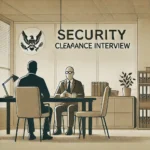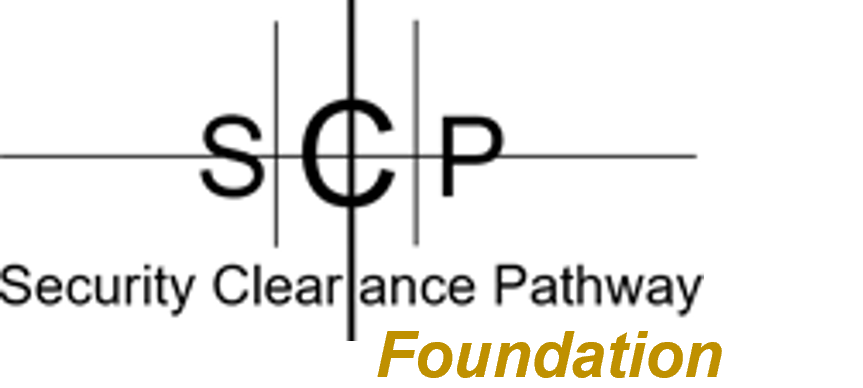Introduction: Why Security Clearance Interviews Matter

If you’re pursuing a government job or defense-related career, chances are you’ll go through a security clearance interview. Whether you’re applying for Confidential, Secret, or Top Secret clearance, your interview is a critical step in verifying your trustworthiness.
Security clearance interviews can feel intimidating—but with the right preparation, you’ll know exactly what to expect and how to respond. In this guide, we’ll explore common questions, tips to prepare, and how to navigate the interview process with confidence.
What Is a Security Clearance Interview?
The interview is part of the background investigation for individuals applying for a clearance level that gives them access to sensitive information.
When Do Interviews Happen?
- Usually for Secret or Top Secret clearance levels
- Sometimes required for Confidential if red flags appear
- After submission of your SF-86 form
The interview is conducted by a background investigator either in-person or via secure video call.
What Investigators Look For
Interviewers are trained to assess:
- Your honesty and consistency
- Potential security risks
- Financial and personal stability
- Foreign connections or influences
- Criminal or drug history
They cross-check your responses with what you submitted in your SF-86.
Start preparing early with our clearance scholarship support.
Most Common Security Clearance Interview Questions
 Personal History & Identity
Personal History & Identity
- Can you verify your full name, date of birth, and current address?
- Have you ever used another name?
- Have you lived at all the addresses listed on your SF-86?
Employment Background
- Why did you leave your previous jobs?
- Have you ever been terminated or asked to resign?
- Have you held jobs not listed on your SF-86?
Financial Responsibility
- Do you have any outstanding debts, collections, or bankruptcy filings?
- Have you ever failed to pay taxes?
- Are you behind on any child support payments?
Criminal and Legal History
 Have you ever been arrested or charged with a crime?
Have you ever been arrested or charged with a crime?- Were you ever involved in a civil lawsuit?
- Have you ever committed a crime but weren’t caught?
Drug and Alcohol Use
- Have you used illegal drugs in the past?
- Do you currently use marijuana or other substances?
- Have you received treatment for substance abuse?
Tip: Be honest—investigators can detect dishonesty through inconsistencies.
Foreign Influence or Travel
- Do you have family or close relationships with foreign nationals?
- Have you traveled outside the country in the past 7 years?
- Do you maintain foreign bank accounts or assets?
Tips to Prepare for Your Interview
1. Review Your SF-86 Thoroughly
- Know what you disclosed
- Be ready to explain gaps or questionable entries
2. Practice Answering Questions Aloud
- Confidence matters
- Ask a friend to run through sample questions with you
3. Bring Relevant Documentation
- Court records
- Payment plans
- Proof of address or citizenship
4. Be Calm and Respectful
- Maintain a professional demeanor
- Don’t get defensive—clarify when needed
5. Be Honest, Even About Mistakes
- Investigators value transparency
- Trying to hide something is worse than admitting it
See how our partners support successful clearance applicants.
What Happens After the Interview?
Your responses are documented and sent back for further adjudication.
The agency will:
- Compare your answers with records
- Look for inconsistencies or unresolved concerns
- Determine if you meet the standard for clearance
Possible Outcomes:
- Clearance approved
- More information required
- Clearance denied
If denied, you’ll receive a Statement of Reasons (SOR) and can begin the appeals process.
How Long Does the Interview Process Take?
It varies based on clearance level and case complexity:
| Clearance Level | Average Interview Timeline |
|---|---|
| Confidential | Not always required |
| Secret | 30–90 minutes |
| Top Secret | 1–2 hours (may include follow-ups) |
The interview is just one step in the overall timeline, which can span weeks to months.
What to Avoid During Your Interview
- Don’t lie or exaggerate
- Don’t argue with the investigator
- Don’t guess—say “I don’t recall” if unsure
- Don’t leave out details
Remember: The goal is to demonstrate integrity, responsibility, and trustworthiness.
Key Resources to Help You Succeed
- Scholarships & Clearance Prep
- Donors & Mentorship Network
- Security Clearance Blog
- Contact Us to Start Your Journey
Final Thoughts: Prepare, Practice, and Stay Honest
Preparing for your security clearance interview doesn’t have to be stressful. Review your history, stay honest, and treat the process with professionalism.
Ready to move forward with confidence?
